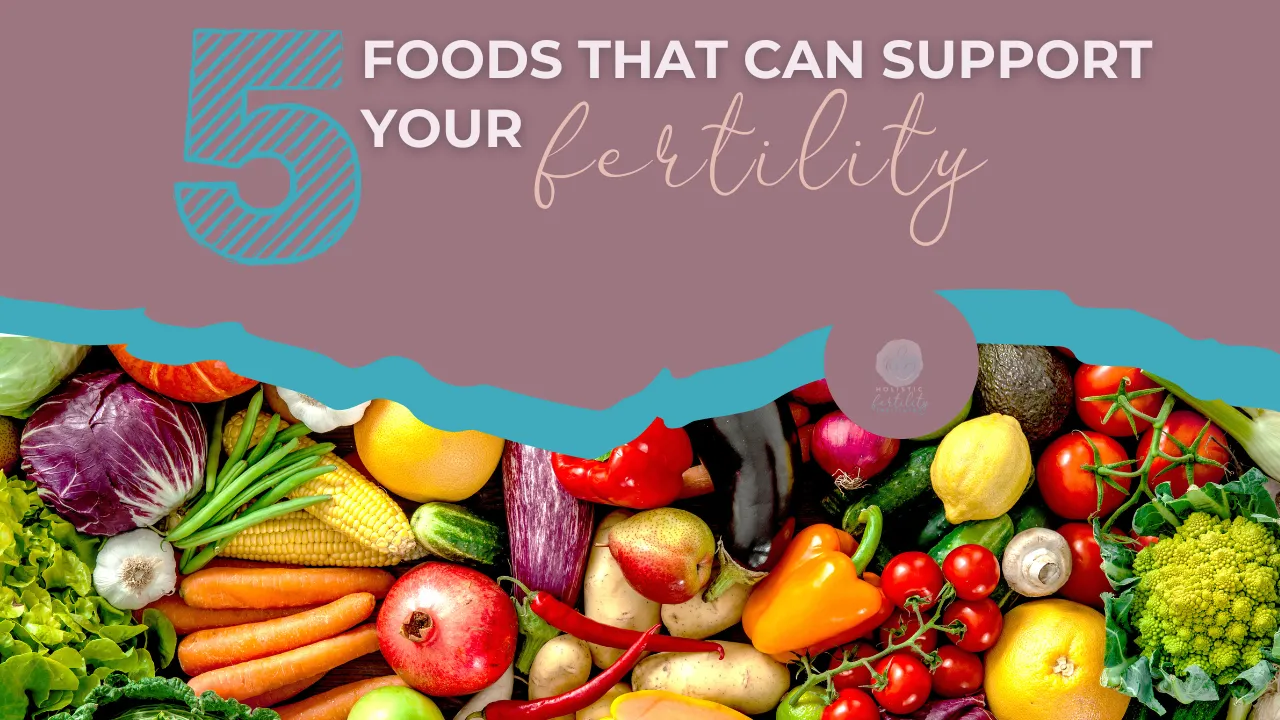Fertility is intricate, tangled into numerous factors that are playing vital roles in an individual or couple's ability to conceive. One of the factors we should consider is the role of nutrition. Are we eating enough of the right foods that support fertility and hormones? Are we absorbing the right nutrients from the foods we are eating? Good nutrition and the appropriate nutrient intake is key for fertility.
To prepare you for pregnancy and boost your fertility, you must maintain a healthy weight and choose foods that will create a safe and supportive home for your baby to develop the brain, heart, and vital functions in the womb. But, being optimally healthy is not just for the baby but for you and your partner as well. The quality of the egg and sperm that will eventually unite to develop into your future baby is actually determined 3-4 months prior to conception. So, as you go through this amazing journey to become a parent and have the family you dream of, remember planning and prepping is the best thing you can do.
Here are the top 5 foods that can support your fertility.
1. Unrefined, unprocessed, complex carbohydrates are essential. A lot of diets in this day and time are anti-carb. In reality, it’s the type of carbohydrate that is most important: is it processed and refined? If yes, it probably comes in a bag, box, or can. This should be avoided. Refined carbs may result in an increase in blood sugar levels and insulin in the body that could disrupt hormones and ovulation.
The unrefined, unprocessed carbs such as gluten-free whole grains (brown and wild rice, quinoa, oats, and millet), carb-rich vegetables such as sweet and white potatoes, and beans and lentils are crucial to fertility. How, you ask? These complex carbs offer nutrients that are important to hormone production, especially progesterone. Additionally, this major food group is important to supporting leptin optimization which in turn has another impact on hormones.
2. Adequate Dietary fiber. Dietary fiber can reduce circulating levels of reproductive hormones. A majority of evidence suggests that higher fiber diets reduce the risk of infertility. The BioCycle Study was a prospective cohort study conducted from 2004 to 2006 that followed 250 women aged 18–44 y for 2 cycles. Dietary fiber consumption was assessed ≤4 times/cycle by using a 24-h recall. Outcomes included concentrations of estradiol, progesterone, luteinizing hormone (LH), and follicle-stimulating hormone (FSH), which were measured ≤8 times/cycle, and incident anovulation. These findings suggest that a diet high in fiber is significantly associated with decreased hormone concentrations and a higher probability of anovulation. (PMID: 19692496)
3. Healthy fats. Wild salmon, sardines, herring, and other types of fatty fish are swimming with fertility-boosting benefits, thanks to the high levels of omega-3 fatty acids they boast. Omega-3 fatty acids found in some foods have a wide range of health benefits. The omega-3 supplementation results in higher antioxidant activity in human seminal fluid and enhanced sperm count, sperm motility, and sperm morphology. A considerable number of infertile men with idiopathic oligoasthenoteratozoospermia might benefit from omega-3 fatty acids administration. (PMID: 22659579)
4. Adequate protein intake. Protein provides amino acids which are the building blocks of hormones, neurotransmitters, and the optimal timings for menstruation and ovulation. Furthermore, when consumed earlier in the day, it can have an optimizing effect on cortisol, which is at the root of many couples’ inability to conceive. The adequate amount of protein is 0.8-1 g / kg of body weight. There is evidence that plant-based proteins may have an added benefit for fertility. One study showed replacing 25 grams of animal protein with 25 grams of plant protein was associated with a 50% lower risk of ovulatory infertility (PMID: 18226626).
5. Diversity of vegetables and small amounts of fruit. Dark leafy greens can support optimal hormone metabolization in the body while providing essential antioxidants to support egg and sperm health. Fruits like oranges, grapefruits, and other citrus fruits are one of the best sources of vitamin C, and they are packed with potassium, calcium, and folate—an essential B-vitamin that can help you get pregnant by regulating ovulation and creating a healthy environment for eggs. Although fruit can offer a wonderful resource of vitamins and antioxidants, it should be stated that there is a need to limit fruit intake to 1-2 servings/ day and balance the remaining servings with vegetables. High intakes of fruit can cause other imbalances which can contribute to anovulation or challenges conceiving.
Eating the right foods and optimizing the intake of nutrients is the best way to start your fertility journey. This should be a lifestyle to consider, since it will support you and your partner’s ability to conceive, and the healthy development of the baby. Many of our couples continue eating this way well past having a baby because they find that it is supportive to general health, and long-term hormone optimization.
We support couples from fertility to pregnancy and postpartum. Visit our website at www.holisticfertilityinstitute.com

